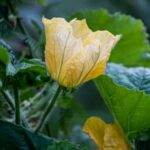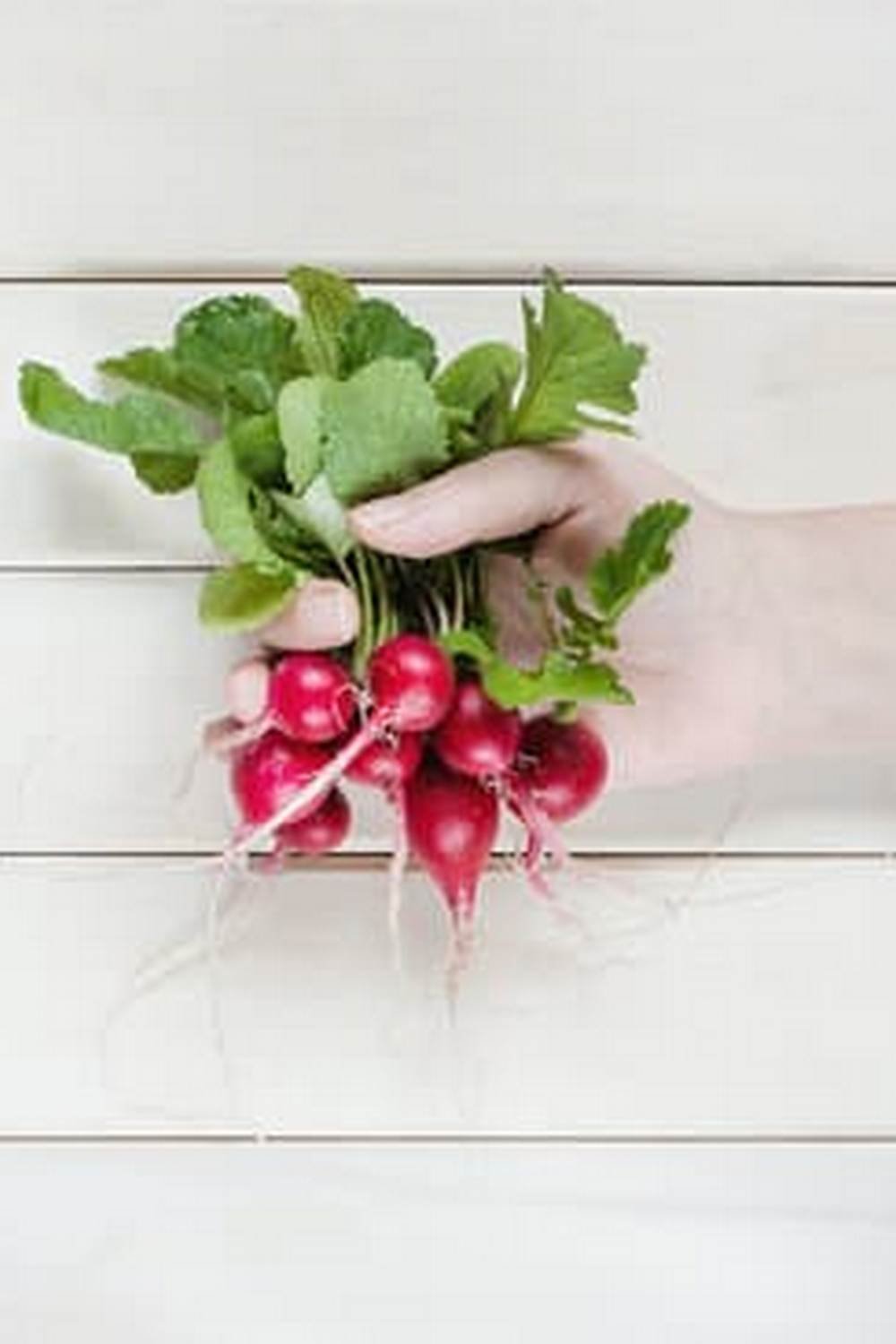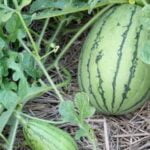Vegetable gardens can be a source of great satisfaction and fresh produce, but they can also attract unwanted pests that can damage or destroy your crops. Finding natural and effective ways to control these pests is essential for the health and success of your garden.
One method that has gained popularity in recent years is the use of pest control flowers. These flowers not only bring beauty to your garden but also play a crucial role in keeping harmful insects at bay.
Pest control in vegetable gardens is a critical aspect of gardening that involves managing and minimizing the population of destructive insects without harming beneficial ones. The aim is to strike a balance that allows your vegetables to thrive while reducing the need for chemical pesticides. Understanding the importance of pest control and its impact on the health and productivity of your garden is vital for any gardener, whether you are a seasoned pro or just starting out.
Flowers have long been valued for their aesthetic appeal, but they also offer numerous benefits when it comes to pest control in vegetable gardens. Many flowers have natural properties that repel or deter harmful pests, making them an excellent addition to any garden.
In addition to their pest-repelling properties, certain flowers can also attract beneficial insects such as pollinators and predators of garden pests. This natural approach not only helps protect your vegetables but also enhances the overall biodiversity and sustainability of your garden ecosystem.
Understanding the Importance of Pest Control
Pest control is a crucial aspect of maintaining a healthy and thriving vegetable garden. Understanding the importance of pest control can make a significant difference in the success of your garden. Pest control is essential because it helps to prevent and manage infestations that can damage crops and reduce yields. By effectively controlling pests, you can protect your vegetables from harm and ensure a bountiful harvest.
One of the most effective and environmentally-friendly methods of pest control is using flowers. Flowers not only add beauty to your garden but also serve as natural repellents for pests. Planting specific flowers can attract beneficial insects that prey on harmful pests, creating a natural balance in your garden ecosystem.
Moreover, flowers contribute to overall garden health by improving pollination, increasing biodiversity, and enhancing soil quality. This holistic approach to gardening not only controls pests but also promotes a more sustainable and balanced environment for your vegetables to thrive. Understanding the importance of incorporating flowers into your pest control strategy is essential for achieving long-term success in vegetable gardening.
| Flower | Pest-Control Benefit |
|---|---|
| Marigold | Deters nematodes, attracts beneficial insects |
| Lavender | Repels moths, fleas, and flies |
| Nasturtium | Deters aphids, whiteflies, squash bugs |
Exploring the Benefits of Using Flowers for Pest Control
When it comes to pest control in vegetable gardens, many gardeners are turning to natural and environmentally-friendly methods to keep their plants healthy and thriving. One such method that has gained popularity in recent years is the use of flowers for pest control.
Not only do these flowers add beauty to your garden, but they also play a crucial role in repelling pests and attracting beneficial insects. In this section, we will explore the numerous benefits of using flowers for pest control in vegetable gardens.
Natural Pest Repellent
Flowers can act as natural pest repellents, warding off unwanted insects that can wreak havoc on your vegetable plants. Certain flowers emit scents or produce chemicals that deter pests from feasting on your crops. For example, marigolds are known for repelling nematodes, while nasturtiums can deter aphids and whiteflies. By strategically planting these flowers throughout your garden, you can create a natural barrier against harmful pests without resorting to chemical pesticides.
Attracting Beneficial Insects
In addition to repelling pests, certain flowers also attract beneficial insects that can help control pest populations in your garden. Ladybugs, lacewings, and hoverflies are just a few examples of beneficial insects that are attracted to specific types of flowers.
These helpful allies prey on common garden pests such as aphids, caterpillars, and mites, making them valuable assets in the battle against destructive insects. By incorporating pest control flowers into your garden, you can create a habitat that supports the presence of these beneficial insects and promotes a healthy ecosystem.
Enhancing Biodiversity
Using flowers for pest control not only benefits your vegetable garden but also contributes to overall biodiversity in your outdoor space. By diversifying the plant species in your garden with pest control flowers, you create a more robust and resilient ecosystem that is less susceptible to pest outbreaks.
This diversity not only improves the health of your plants but also creates a visually stunning and vibrant landscape for you to enjoy. The interconnected web of plant and insect life fostered by including pest control flowers adds depth and richness to your gardening experience.
Top Pest Control Flowers for Vegetable Gardens
When it comes to pest control in vegetable gardens, using flowers as a natural solution can be highly effective. Not only do flowers add beauty to your garden, but they also play a crucial role in attracting beneficial insects that help control pests. By understanding the top pest control flowers for vegetable gardens, you can create a thriving and healthy garden ecosystem.
Here are some of the top pest control flowers for vegetable gardens:
- Marigolds: These vibrant flowers are known for repelling nematodes, slugs, and other common garden pests. Planting marigolds around the perimeter of your vegetable garden can provide a natural barrier against unwanted insects.
- Nasturtiums: Nasturtiums not only add a pop of color to your garden, but they also attract aphids away from your vegetables. These flowers act as a trap crop, diverting aphids from your precious produce.
- Sweet Alyssum: This low-growing flower is highly attractive to hoverflies, which are important predators of aphids. By planting sweet alyssum in your vegetable garden, you can encourage hoverflies to stick around and keep aphid populations in check.
Incorporating these pest control flowers into your vegetable garden can help create a balanced and harmonious environment where beneficial insects thrive and harmful pests are naturally controlled. Whether through companion planting or as borders between different sections of your garden, these flowers offer an eco-friendly solution to pest management.
How to Incorporate Pest Control Flowers Into Your Garden
Pest control is an essential aspect of maintaining a healthy and thriving vegetable garden. Incorporating natural pest control methods, such as using flowers, can effectively keep harmful insects at bay while promoting a more sustainable and eco-friendly gardening approach.
The use of pest control flowers in vegetable gardens not only helps to deter pests but also adds beauty and diversity to the garden. Some flowers attract beneficial insects that act as natural predators to common garden pests, creating a balanced ecosystem within your gardening space.
One effective way to incorporate pest control flowers into your garden is by planting them strategically throughout the vegetable beds. For example, marigolds are known for repelling nematodes, aphids, and other destructive insects, so planting them alongside tomatoes or cucumbers can help protect these plants from potential damage. Additionally, flowers like lavender and dill attract pollinators and predatory insects that actively hunt down pests like aphids and caterpillars.
It’s important to research which pest control flowers are best suited for your specific region and the types of pests that commonly affect your vegetable crops. By understanding the needs of your garden ecosystem, you can create a more effective pest management strategy using natural and sustainable methods.
| Pest Control Flower | Main Benefit |
|---|---|
| Marigold | Repels nematodes and aphids |
| Lavender | Attracts pollinators and predatory insects |
| Dill | Attracts beneficial insects that hunt down pests like aphids |
Tips for Maintaining a Healthy Garden With Pest Control Flowers
Maintaining a healthy garden with pest control flowers is essential to ensuring that your vegetable plants thrive and produce a bountiful harvest. When it comes to integrating pest control flowers into your garden, there are several tips and best practices to keep in mind.
Choose the Right Flowers
Not all flowers are equally effective in controlling pests in vegetable gardens. It’s important to research and select the right pest control flowers for your specific needs. For example, marigolds are known for repelling nematodes, while nasturtiums can deter aphids and whiteflies. By carefully choosing the right flowers for your garden, you can effectively combat common pests without resorting to chemical pesticides.
Strategic Plant Placement
To maximize the effectiveness of pest control flowers, strategic plant placement is crucial. Consider interplanting pest control flowers with your vegetables or placing them around the perimeter of your garden to create a natural barrier against pests. Additionally, planting pest control flowers near susceptible vegetables can help ward off potential infestations.
Maintain Garden Hygiene
Incorporating pest control flowers into your garden is just one part of maintaining a healthy growing environment. Regularly removing weeds, fallen leaves, and other debris from your garden can help minimize hiding spots for pests and reduce the risk of infestation. By practicing good garden hygiene in conjunction with using pest control flowers, you can create an inhospitable environment for unwanted pests while promoting the overall health of your vegetable plants.
By following these tips and integrating pest control flowers into your gardening practices, you can maintain a healthy garden that thrives without the need for harmful chemical pesticides. With careful planning and maintenance, you can enjoy a flourishing vegetable garden that is naturally protected from damaging pests.
Common Mistakes to Avoid When Using Pest Control Flowers
When incorporating pest control flowers into your vegetable garden, there are a few common mistakes that you will want to avoid in order to ensure the effectiveness of this natural pest control method.
One common mistake that gardeners make when using pest control flowers is not choosing the right flowers for their specific garden and pests. Different flowers have different abilities to repel or attract certain pests, so it’s important to research which flowers are best suited for the pests you are dealing with in your vegetable garden. For example, marigolds are known for repelling nematodes, while nasturtiums can deter aphids and whiteflies.
Another mistake to avoid is planting too few pest control flowers or planting them in the wrong locations within your garden. In order for pest control flowers to be effective, they need to be planted strategically throughout your vegetable garden, not just clustered in one area. By spreading them out and planting enough of them, you can create a barrier that deters pests from infesting your crops.
Lastly, a common mistake is neglecting to properly care for your pest control flowers. Just like any other plant in your garden, these flowers need proper maintenance and care in order to thrive and effectively repel pests. This includes regular watering, fertilizing, and pruning as needed.
By being mindful of these common mistakes and taking the necessary steps to avoid them, you can successfully harness the power of pest control flowers in your vegetable garden and maintain a healthy and thriving crop without relying on chemical pesticides.
Success Stories of Gardeners Using Pest Control Flowers
Many gardeners have experienced remarkable success in using flowers for pest control in their vegetable gardens. By incorporating these natural remedies, they have been able to effectively manage and prevent pest infestations without resorting to harmful chemical solutions. Here are some inspiring stories from gardeners who have embraced the power of pest control flowers:
- Laura, a passionate gardener from California, struggled with aphid infestations in her vegetable garden every summer. Frustrated with the damage caused by these pests, she decided to plant a variety of marigolds around her vegetables after learning about their pest-repelling properties. To her delight, the presence of marigolds significantly reduced the number of aphids in her garden, allowing her crops to thrive without the need for chemical pesticides.
- John, a novice gardener from Texas, was facing a major caterpillar problem that was threatening his tomato plants. Determined to find a non-toxic solution, he started growing dill and cilantro near his tomatoes after reading about their ability to attract beneficial insects like parasitic wasps and ladybugs. Within a few weeks, he noticed a significant decrease in caterpillar activity, and his tomato plants remained healthy and productive throughout the season.
- Maria, an urban gardener from New York City, had been struggling with whitefly infestations on her kale and broccoli crops. Eager to find a natural remedy, she planted a border of sunflowers around her raised beds to create a barrier against these persistent pests. Not only did the sunflowers provide an attractive backdrop for her garden, but they also helped deter whiteflies from infesting her brassicas, allowing her to enjoy bountiful harvests without relying on chemical insecticides.
These success stories demonstrate the potential of using pest control flowers as an effective and environmentally-friendly approach to managing garden pests. By harnessing the power of nature’s own defenses, these gardeners have found sustainable solutions that benefit both their crops and the surrounding ecosystem.
Conclusion
In conclusion, pest control flowers are a natural and effective way to protect your vegetable garden from harmful pests. By understanding the importance of pest control and exploring the benefits of using flowers for this purpose, gardeners can incorporate these natural allies into their gardening routine. The top pest control flowers for vegetable gardens, such as marigolds, chrysanthemums, and lavender, offer both beauty and functionality to your garden landscape.
By incorporating pest control flowers into your garden, you can create a thriving ecosystem that naturally prevents pests while also attracting beneficial insects. Whether you plant them alongside your vegetables or in separate areas of your garden, these flowers can help maintain a healthy balance and prevent the need for harsh chemical pesticides that may be harmful to both plants and wildlife.
It’s important to remember that maintaining a healthy garden with pest control flowers requires proper care and attention. Regular maintenance, including deadheading spent flowers and providing adequate water and sunlight, will ensure that these beneficial plants continue to thrive. Avoid common mistakes such as over-planting or neglecting other aspects of garden care in favor of simply relying on the presence of these flowers.
Ultimately, embracing the power of pest control flowers in vegetable gardens can lead to successful gardening stories like those shared by experienced gardeners who have seen the benefits firsthand. So why not give it a try? By incorporating pest control flowers into your vegetable garden’s landscape, you can enjoy a beautiful and bountiful harvest while promoting natural pest prevention methods.
Frequently Asked Questions
What Flower Keeps Bugs Away From Vegetables?
Marigolds are known for keeping bugs away from vegetables due to their strong scent, which repels insects. Planting marigolds around vegetable gardens can help protect the crops from pests.
What Are the Best Flowers for Pest Control in the Garden?
Some of the best flowers for pest control in the garden include lavender, chrysanthemums, petunias, and sunflowers. These flowers not only add beauty to the garden but also help repel pests and attract beneficial insects.
What Flower Works as a Natural Pest Control?
Lavender is a natural pest control that works well in gardens. Its pleasant fragrance deters mosquitoes, flies, and moths. Additionally, lavender attracts pollinators like bees and butterflies, contributing to a healthy garden ecosystem.

If you’re looking to get into vegetable gardening, or are just looking for some tips on how to make your current garden better, then you’ve come to the right place! My name is Ethel and I have been gardening for years. In this blog, I’m going to share with you some of my best tips on how to create a successful vegetable garden.





